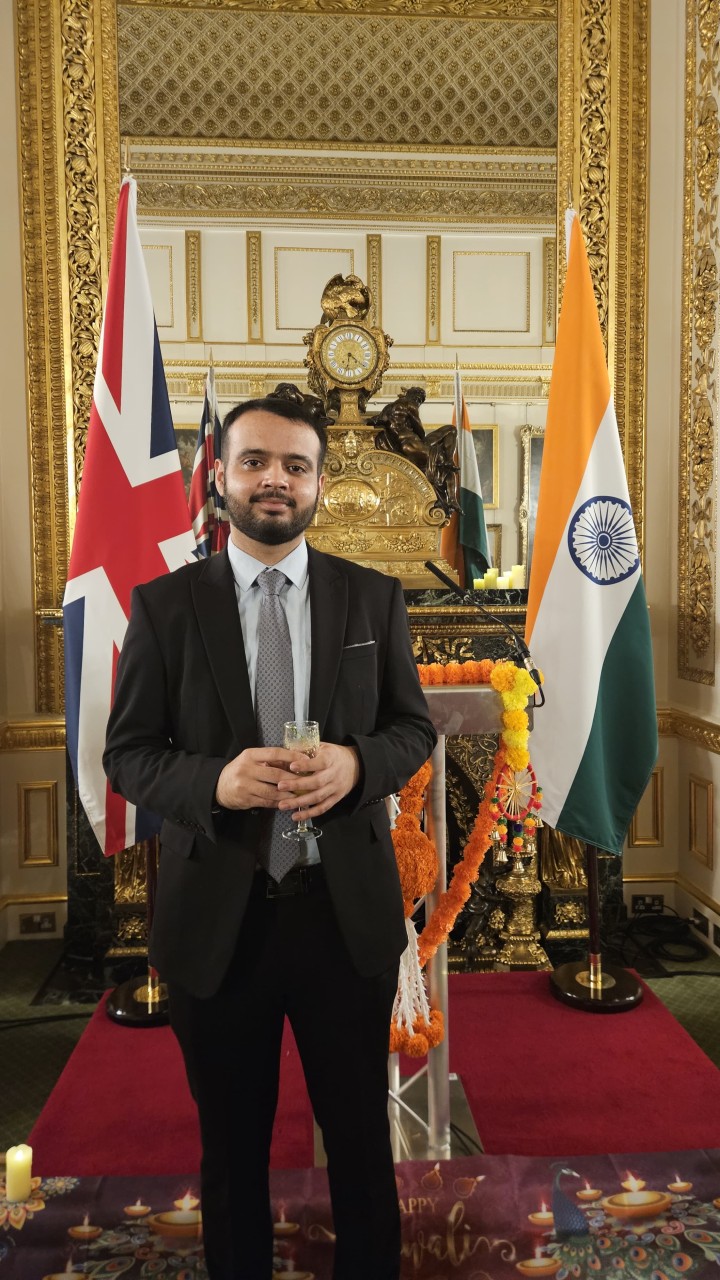Chevening Scholar, Vedant Singh Rathore from India, Shares How He Pursued His MSc in Machine Learning at University College London
University: University College London
Degree: MSc in Machine Learning
Previous Education: BSc in Physics – St. Stephen’s College, University of Delhi
Scholarship: Chevening Scholarship – Fully Funded (Tuition, Living, Travel)
Social Media
LinkedIn: linkedin.com/in/vedant-singh-rathore/

The Journey
I’m Vedant Singh Rathore, originally from Etah, India. I recently finished my MSc in Machine Learning at University College London. My entry into ML wasn’t planned. During Covid, I graduated in Physics but couldn’t go abroad, so I took a role with the Data Science team at an FMCG firm. That job pulled me into ML, and I loved how it mixed problem-solving with math. After four years in the field, I wanted to sharpen my foundations properly, which led me to pursue a formal Master’s.
Chevening Scholarship Details
I applied only for the Chevening Scholarship. It’s one of the most prestigious UK scholarships, offering full funding for tuition, living, and travel. Without it, studying in the UK would have been financially out of reach, so the award really made this journey possible.
Educational Background
I studied Physics at St. Stephen’s College, University of Delhi, graduating in 2020 with a First Class equivalent. The program gave me a solid grounding in math, especially linear algebra and computer science, and honed problem-solving and critical thinking skills. That background made it easier to pivot into ML later, and without it, I don’t think I’d have managed UCL.
How Did You Prepare to Apply to University College London?
Most applications were built around a Statement of Purpose (SOP), with some requiring a technical experience statement. I applied to Cambridge, UCL, Edinburgh, Imperial, and King’s, and received offers from all except Cambridge. My choices were based on the modules offered, since each university has its own ML strengths.
I also took the GRE (321) and IELTS (8.0). Honestly, the tests were easier than the actual challenge, writing an SOP that showed how my goals matched what each program offered, and using the technical statement to highlight hands-on expertise.
How Did You Prepare to Apply to the Chevening Scholarship?
The preparation for Chevening is extremely rigorous and time-consuming. For my application, I had to write 4 essays, each 500 words, which detailed my leadership skills, relationship-building skills, career plans, and described why I chose the UK. This is the first stage of the scholarship; in some 2000-odd words, I was expected to showcase everything about myself. Luckily, with a lot of help from a past scholar and a friend, I was able to write something that the selection committee considered suitable for the next round.
Before the next round, i.e., the interview, I had to provide two references from people who have known me and worked with me in a close capacity. The choice of referees is also critical for the application to receive credit. It should be from people who have either directly collaborated with you or from someone you have reported to. This makes the references a credible source for an all-around persona.
Finally, the interview is the most important part of the process. Here, expectations were to show that I understood exactly what I wrote in my essays and that I actually stood by my words and had not written them just to pass the first round. Preparation for this phase was mostly introspection and knowing the roadmap that I had created for myself.
What Do You Think Made Your Application Stand Out?
I kept it brutally honest. In my networking essay, I even started by saying I’m an introvert, which they asked me about in the interview. I also admitted that I didn’t come from disadvantage or hardship. Instead, I focused on confidence in my skills, my pro-bono work with startups, and mentoring individuals in ML. That honesty seemed to stick.
What Would You Have Done Differently if You Were Going Through the Process Again?
While I am extremely happy with the outcome of my programme, I feel I could have explored options beyond the UK. I limited my options primarily due to the funding options and the cultural experiences. A master's programme in a new culture is not only about the best classrooms but also about the experiences that come with it. Unfortunately, this is an observation that can only be made in retrospect.
What Advice Would You Give Those Looking to Apply for a Similar Scholarship?
Be clear about your purpose. Don’t pad your essays with big words or inflated claims. This isn’t a job application where revenue numbers decide things — it’s about your story. Use examples that show you’ve actually used your skills.
And most importantly, don’t self-reject. Apply broadly. If you get the scholarship, great. If not, at least you won’t look back wondering “what if.”
Want to submit your
scholarship journey?
Submit Your Story Here!
More Scholarship Recipients

My name is Zara Qaiser. I’m originally from Singapore and Pakistan (yes, both!), and I am now pursuing a PhD in Public Pol .... Read more
- American University
- Columbian College of Arts & Sciences Doctoral Fellowship
- Economics
- Fully Funded Scholarships
- Graduate Assistantships
- Graduate Merit Award (American University)
- Pakistani Nationality
- Ph.D. Scholarships
- Public Administration
- Public Policy
- Singaporean Nationality
- The George Washington University
- United States
- University of Massachusetts Boston

Hello! My name is Sakshi Barhai, and I am from Pithora, a small town in the state of Chhattisgarh, India. After clearing the .... Read more

My academic journey toward biomedical science has been shaped by both curiosity and reality. Growing up in Pakistan, I obser .... Read more

Leave A Comment